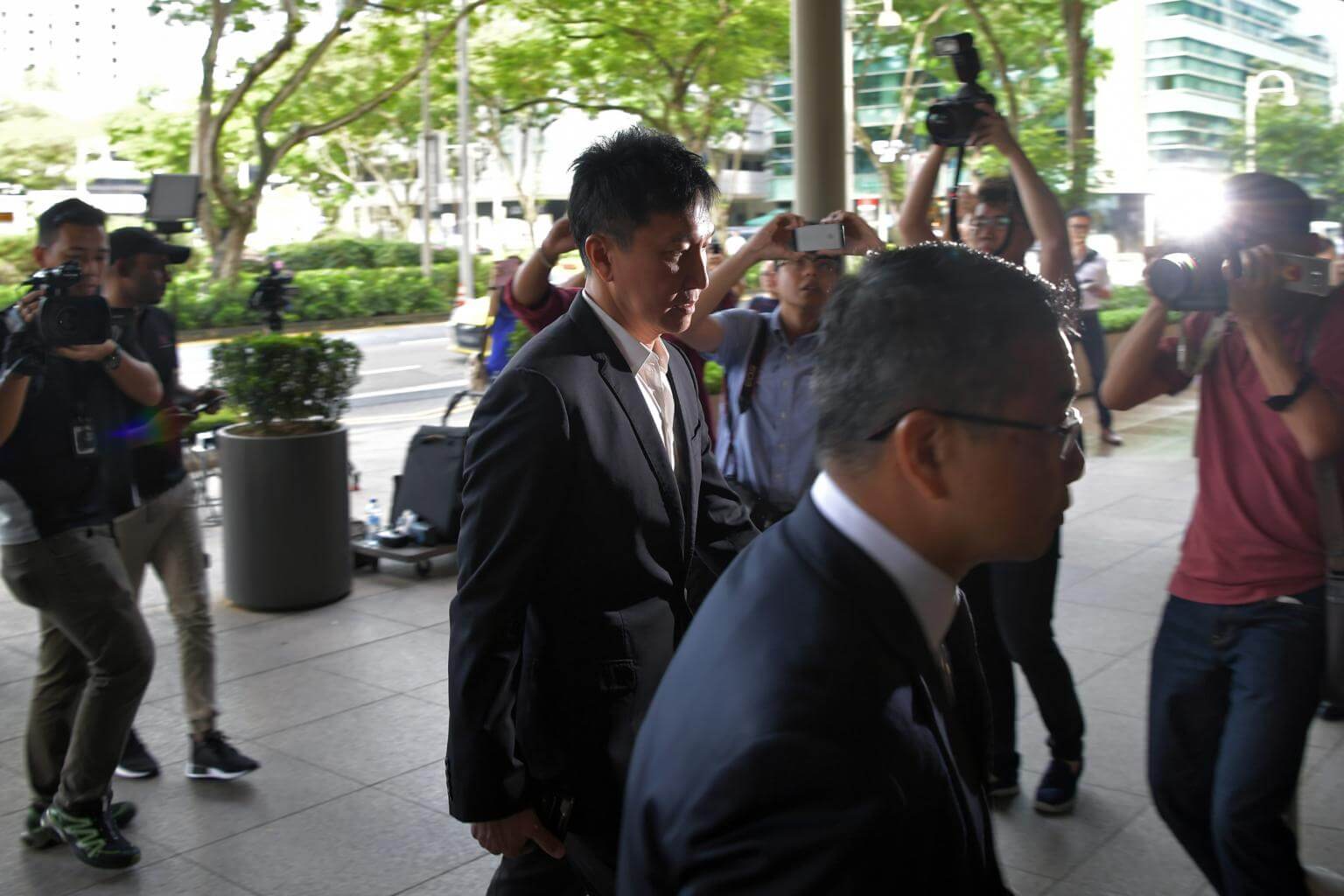City Harvest appeal: Why was charge reduced?
Sign up now: Get ST's newsletters delivered to your inbox

Kong Hee arriving at the Supreme Court with his lawyer Edwin Tong.
ST PHOTO: KUA CHEE SIONG
SINGAPORE - The appeals by six of the six City Harvest Church leaders against conviction were allowed solely because their charges for criminal breach of trust (CBT) were reduced to a less serious provision in a split 2-1 decision.
In a statement, the Attorney-General's Chambers said: "The prosecution will study the written grounds of decision issued by the High Court before deciding on the appropriate course of action."
Church founder Kong Hee, deputy senior pastor Tan Ye Peng, former fund manager Chew Eng Han, former finance committee member John Lam and former finance managers Serina Wee and Sharon Tan were originally convicted of engaging in a conspiracy to commit criminal breach of trust by an agent.
This is an offence under section 409 of the Penal Code.
However, on Friday, the majority of the three-judge court said these charges have not been made out. It found that the six of them did not fall within the meaning of "agent" under section 409.
"In considering whether a director falls within the scope of section 409 of the Penal Code, the crucial question is whether he may be said to be acting in the way of his business as an agent. We do not think so," said Judge of Appeal Chao Hick Tin.
"While a director undoubtedly holds an important position in a company or organisation, it cannot be said that a person by becoming a director has offered his services as an agent to the community at large or that he makes his living as an agent.
"Additionally, the relationship between a director who is entrusted with the property and the company, which is the one entrusting the property, is an internal one. This stands in stark contrast to the external nature of the relationship that an agent such as a banker, a merchant, a broker or an attorney shares with his customer who entrusts the property with him."
The six should only have been convicted of criminal breach of trust under section 406 of the Penal Code, he said.
However, the court stressed that the lower court was not wrong to have convicted the five of section 409 - because Presiding Judge See Kee Oon was bound by a 40-year-old High Court decision which had ruled that directors can be considered agents under section 409.
The decision of the majority to reduce the CBT charges had a significant impact on the sentences. The maximum imprisonment under section 406 is less than half of the maximum under section 409.
This meant that there was a significant downward shift in the sentences meted out to the six leaders.
However, dissenting judge, Justice Chan Seng Onn, disagreed with the majority's interpretation of the law on the CBT charges that section 409 applies only to professional agents.


